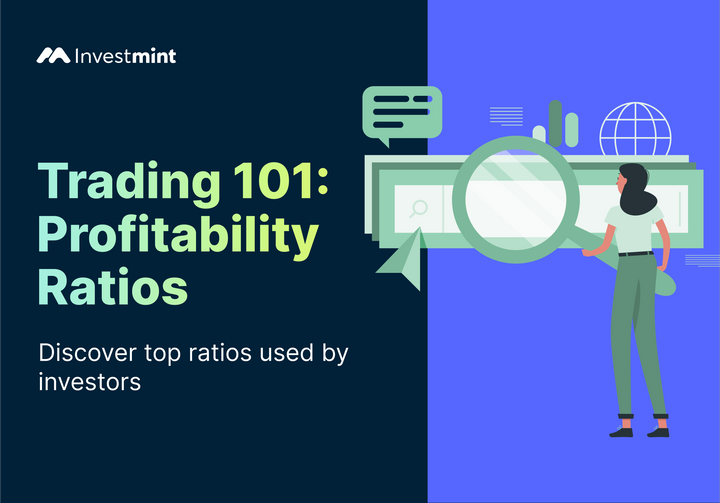What Are Hedge Funds? Everything You Need To Know
Hedge Funds have a lot in common with Mutual Funds, but there are some differences. Some of them include eligibility requirements, minimum investment amount, and more.

Imagine a world where the mutual fund that you invest in had the liberty to invest in any asset, be it stocks, derivatives, or even art?
Well Mutual Funds might not be able to do that, but hedge funds can. hedge Funds have experienced fund managers who constantly mix and match assets and techniques to find hidden opportunities for profit. They can make big returns on investments that regular investors might not consider.
Seems interesting right, but hold on! Hedge fund investments aren't for everyone. They have their own set of risks and rules. They're heavily regulated, and you usually need a lot of money to get involved.
So, what are hedge funds and who typically invests in them? We'll give you all the information you need to understand these intriguing investment vehicles and the details about them.
What Is A Hedge Fund?
In simple terms, a Hedge fund is like a Mutual Fund that pools money from various investors, to invest in diverse financial assets. However, as Mutual funds can only invest in a particular asset class or a handful of asset classes, a hedge fund can invest in various assets, including stocks, bonds, currencies, commodities, and more.
Hedge funds are typically managed by professional fund managers or investment teams who aim to generate positive returns for their investors. Sounds like a mutual fund, right? But hedge funds are meant for the ultra-wealthy. They have high investment amounts (usually more than 1 Crore) and employ complex investment techniques. Additionally, they can take risks by betting on the rise or fall of specific investments. This flexibility allows hedge funds to generate returns regardless of market conditions.
What Are The Different Types Of Hedge Funds?
Hedge funds in India come in various forms, each with its own unique investment strategies and focus. Here are some different types of hedge funds:
- Long/Short Equity: These hedge funds take long and short stock positions, aiming to profit from rising and falling prices. They may focus on specific sectors or employ a broader market approach.
- Global Macro: Global macro hedge funds make investment decisions based on macroeconomic factors and global events. They analyse trends in economies, currencies, interest rates, and political developments to make bets on various asset classes.
- Event-Driven: Event-driven hedge funds seek to capitalise on specific events or situations that can impact the value of companies. Examples include mergers and acquisitions, bankruptcies, or other corporate events that may create profit opportunities.
- Arbitrage: Arbitrage hedge funds exploit price discrepancies between related securities or markets. For example, they may simultaneously buy and sell similar securities in different markets to capture small price differences.
- Market Neutral: These hedge funds minimise the market risks associated with investing in hedge funds. Some examples are convertible bonds, fixed income arbitrage, etc.,
- Multi-Strategy: Multi-strategy hedge funds employ a combination of different investment strategies. They diversify across multiple asset classes and may dynamically shift allocations based on market conditions.
These are just a few examples. Many other types of hedge funds in India focus on specific niches or employ hybrid strategies.
How Do Hedge Funds Work In India?
In India, hedge funds operate within the framework of the Securities and Exchange Board of India (SEBI) regulations. They typically charge a management fee, which is a percentage of the total assets under management (AUM), typically ranging from 1% to 2% of AUM. They also have performance fees, typically around 20% of the profit, but they vary depending on the fund's terms and agreements.
How Are Hedge Funds Taxed?
In India, hedge funds are treated as Alternative Investment Funds (AIFs) and are subject to specific tax regulations. Category III Alternative Investment Funds (AIFs) in India, including hedge funds, have a different taxation treatment compared to Category I and II AIFs.
Here, AIFs are treated as separate entities for tax purposes. The income generated by the AIF is taxed at the fund level and not at the investor level. The AIF must pay taxes on its income, including profit from trading, capital gains, and other income, as per the applicable tax rates. The tax rate for Category III AIFs is 42.74% of profit for annual earnings exceeding Rs 5 crores.
Different Strategies Hedge Funds Use
Hedge funds employ various investment strategies to achieve their financial goals and manage risk. Here are explanations of some common strategies used by hedge funds:
Event-Driven Strategy:
- Event-driven hedge funds focus on investing in securities of companies undergoing significant corporate events or special situations.
- Examples of events include mergers, acquisitions, bankruptcies, restructurings, spin-offs, or regulatory changes.
- These funds aim to profit from these events' price discrepancies or valuation changes.
Long-Term Strategy:
- Long-term hedge funds take a patient approach and make investments with a longer investment horizon, typically several years.
- These funds often seek undervalued or overlooked assets, believing the market will eventually recognise their true value.
- Long-term strategies include investing in stocks, bonds, real estate, or other asset classes with long-term growth potential.
Arbitrage Strategy:
- Arbitrage hedge funds capitalise on price discrepancies in related securities or markets to generate risk-free or low-risk profits.
- They simultaneously buy and sell similar assets to exploit temporary price differences, such as mergers or statistical arbitrage.
- Arbitrage strategies typically involve using sophisticated quantitative models and high-speed trading technologies.
Market-Neutral Strategy:
- Market-neutral hedge funds aim to generate returns regardless of overall market direction.
- They typically maintain a balanced portfolio by taking long positions in some securities and short positions in others.
- The goal is to eliminate or reduce exposure to general market movements while focusing on capturing relative performance between individual securities.
Market-Driven Strategy:
- Market-driven hedge funds rely on macroeconomic analysis, market trends, and investor sentiment to make investment decisions.
- They consider factors like interest rates, currency movements, geopolitical events, and economic indicators.
- Based on their market outlook, these funds may invest across multiple asset classes, including stocks, bonds, commodities, and currencies.
Hedge Funds vs Mutual Funds

Summary
- Hedge funds in India are exclusive investment vehicles reserved for high-net-worth individuals and institutions, offering access to diverse investment strategies beyond traditional approaches.
- Hedge funds can explore various investment avenues, such as long and short positions, derivatives, leverage, and unconventional assets, aiming to generate positive returns regardless of market conditions.
- These funds require substantial minimum investments, ensuring participation from individuals with significant financial means, setting them apart from traditional investment options available to the general public.
- Hedge fund managers employ complex investment techniques to uncover hidden opportunities for profit, constantly mixing and matching assets and strategies that may not be accessible to regular investors.
- While hedge funds offer unique opportunities, they come with their own set of risks, strict eligibility criteria, and regulatory obligations. It is important for investors to carefully assess their suitability and understand the specific terms and agreements associated with hedge fund investments.
Click on the Subscribe button and get the next release right in your Inbox!



